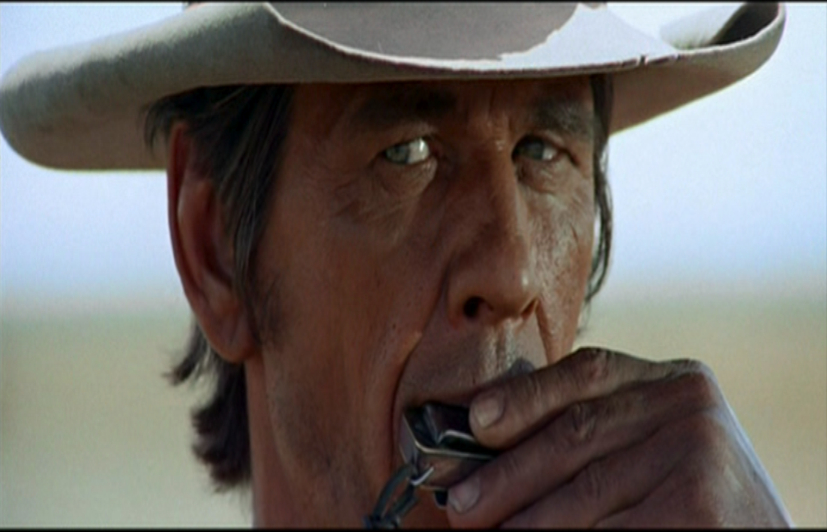In the historiography of the United States, there are three periods that are particularly noted for a high degree of anti-communist sentiment – the 1920s, the 1950s, and the 1980s. These periods, especially the first two, are known as “Red Scares.” And while I do not like the term, as it suggests a degree of unjustifiable fear, I will use it here for the sake of convenience. In the standard leftist telling of history, the American public was whipped up into an anti-communist frenzy and lashed out at communists, real or imagined. In the more moderate leftist understanding of this story, the focus is on the latter, as many people who were not communists were targeted and had their careers destroyed. Meanwhile, the more radical members of the Left focus on the former, but due to their ideology, communists were simply trying to make the world a better place and were ruined by those who feared a “better” socialist future.
As is often the case, this narrative is missing context. To understand the Red Scares, we must examine the world right before they began. In 1914, communism was a marginal ideology, centered on a radical fringe that had no following in either mainstream unions or academia. By 1920, all that changed. Thanks in large part to the upheaval of the Great War, communists were able to seize control of the largest nation on earth. Even more troubling, seeing that this was the promised moment of the revolution, the communist undergrounds sprang into action and launched terrorist campaigns. American fear of communism was driven by these two facts – what the communists had done to Russia and the very real concern of bombings and revolutions.
This can also be observed during the Second Red Scare in the 1950s. In 1944, there was one communist nation on earth. By 1950, communism covered half of Europe, not to mention all of China, and it was knocking on the door of both France and Italy. Even more concerning was the revelation of just how extensive Soviet spying had been. The general consensus from the American intelligence community in 1945 was that it would take years before the Soviets could build a nuclear weapon, and this was considered the one trump card the West had in thwarting communist aggression. As it turned out, that only lasted until 1949, thanks almost exclusively to American communists who were willing to pass nuclear secrets to the Soviets. As in the case of the 1920s, American anti-communists of the 1950s were reacting to the sheer number of communist gains that had been made in the previous five years.
This trend can be seen in the 1980s, too. After the fall of South Vietnam, communism quickly spread in Southeast Asia and Africa and was even threatening the one area of the world most vital to American security – Latin America. And, just prior to that, Middle America had watched in horror as the counterculture proudly displayed its affinity for communism. As was the case with the 1920s and the 1950s, the Third Red Scare of the 1980s was completely justified when one considers the time period. Far from a random witch hunt, it was due to communist aggression, both overseas and, very importantly, at home.
However, something does stand out about the Third Red Scare – what an utter failure it was. Though not perfect, the First and Second Red Scares did a fine job at stopping communism. After the 1920s, no nation would fall to communism until the end of World War II. Even in the depths of the Great Depression, Americans were still staunchly anti-communist. This happened again in the 1950s. Although the communists did have more success than they did in the Interwar period, the pace of communist conquests were significantly slowed down. And, once again, the average American remained anti-communist. When the Chicago Police Department beat up hippies in 1968, the typical American saw their fathers, brothers, and sons giving a deserved beatdown to communist agitators. By contrast, the “success” of the Third Red Scare is far less impressive – it appears as if a sizable number of Americans no longer care that their history is being actively destroyed and a great number are even now calling themselves communists or socialists (certainly more so than 1960s hippies). This would have been unthinkable in the 1980s.
I think there are two major reasons for this. The first reason is that, unlike the previous two, the Third Red Scare displayed a distinct lack of concern for domestic communism. In the First and Second Red Scares, there was a far greater emphasis on fighting domestic communism. This is because the Right could be united behind the crusade against domestic communism. But, the fight against foreign communism was different. In the 1920s, and even to a lesser degree in the 1950s, non-interventionism was strong on the Right. Sure, no one wanted Russia to be communist, but if the Russians didn’t want communism, then they needed to pick up weapons and do it themselves, the United States could not make them by force. In the Third Red Scare, the emphasis shifted to foreign communism – for example, like how Rambo fights commies in Vietnam and Afghanistan, but not in the United States. Even in something like Red Dawn or Invasion USA, the threat of a communist takeover of the United States came from a foreign army, not homegrown radicalism. The ultimate reason for this shift in emphasis is due to the Right being unwilling to push for the full rehabilitation of Joseph McCarthy, which would have been necessary to defeat domestic communism after the 1950s. They certainly would have had good justification to do so, they saw what happened in the 1960s, but they were unwilling to take action.
The second reason is because of the fall of the Soviet Union. After the fall of the Soviet Union, far too many on the Right convinced themselves that communism was now fully discredited. It was a spent ideology that no one believed in, save for a few aging hippies. That was a fatal mistake. They never gave up, they just regrouped and changed tactics. Communists will never stop fighting, and that is why the Right cannot stop fighting them back. Communists believe that they have been chosen to lead the world into a promised utopia. The Left can no more abandon this battle than Christians can forget about the Second Coming.
There is a school of thought I adhere to, one also shared by Eric Voegelin and Bishop Fulton Sheen, is that communism is not so much simply a political program as it is an all-encompassing ideology with religious connotations. In this understanding of communism, communism is a religious rival to Christianity and is, in many ways, a particularly perverse and dangerous heresy. Instead of the “World to Come” ushered in through the power of God, communism believes in a world where humans, by their own power, create heaven on earth.
The Right must understand just how thorough of a worldview Marxism (communism) is. That there is Marxist history, economics, political science, and philosophy is at least understandable, as these are the fields in which Marx actually worked. But there is also something like Marxist geography, as a good Marxist should be able to see the truths of Marx even in geography. During one point in Soviet history, the official line of thought in biology was to reject Gregor Mendel’s works on genetics. Genetics proposes that certain traits are hardwired and inherent, and, as such, cannot be undone. Communism, with its promise of a utopia, was (still is) drunk on the idea of radical and unlimited change. And since genetics suggested a limit to said change, it had to be rejected. The Right was foolish to think that the fall of the Soviet Union would render communism impotent, it was simply a time to regroup. People who have such an extensive worldview cannot be expected to seriously give it up.
Though it was able to correctly identify the danger of foreign communism, the Third Red Scare failed to understand the threat of domestic communism, largely because it would not seriously address the shadow of McCarthy and became overly confident in its victory over the Soviet Union. By not addressing these two issues, the Right allowed the domestic communist threat to remain, where it simply bided its time until the moment was right. That moment has now come, and now the Right is being forced to answer for its past failures.







Quite right. There’s no accord or peaceful coexistence with Bolshevism:
“Ha! Bygone days, ancestors, history, fame! The devil take your fame and history! Everything has become pale and grey, and heroes do not exist! … All that is beautiful and fine must be done away with. … May humanity grovel in bestial sensuality, like worms in a dunghill! That’s what I call equality! All identical, all white, slimy, stinking of the dung they feed on! This is the end we are aiming at! The equality of worms!” p. 398.
Pyotr Krasnov, ‘From Double Eagle to Red Flag’, trans. 2nd ed. by Erik Law-Gisika
That’s a great quote. We sure are looking like a bunch of worms in a dung hill. Fat and happy.
I have a book called “the other Russia” about Russian emigres fleeing Russia, written by the people who fled. Today I’m told many people are fleeing Russia now because of the draft there, but I cant imagine trying to flee Bolshevik Russia like they did in the book I mentioned, it may be harder now I don’t know.
In the book a White Russian described how he survived Ukraine during that time (WW2) before he left and when the German Nationalist invaded. In his mind he didn’t care much for the Germans because he erroneously blamed them on sending Lennon to Russia.
The Germans treated the people in a respectful manner according to him.
The book I have is a first edition unedited proof that was in a free box in front of the bookstore.
I can’t guarantee the final product is the same, it’s still called “the Other Russia”.
I’m going to get that book you quoted and read it this Winter.
God Bless you Sir.
PS. The Summer here has been brutally Hot. Was fighting heatstroke for a few days Hot.
I didn’t get any relief for 2 months until the wildfire smoke blocked out the sun. Than the next day prayers were answered and it rained. You can say I was not on the ball all summer.
Excuse me for the late reply.
You won’t be disappointed. Krasnov was a great and courageous man (and a great writer in the finest Russian tradition of great writers) who risked his final brutal hanging with piano wire (it’s said) at the hands of Bolshevik Russia in 1946 for what he knew was right. Like Rosenberg and Fritsch, he knew who were the world’s string-pullers and named them.